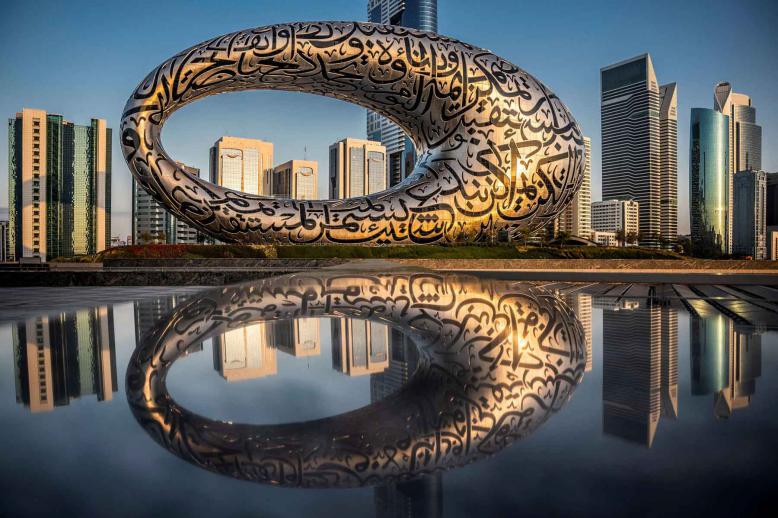The Explosion of Iraq's Weapons Depots
BAGHDAD - The problem of explosion weapon stores is growing in the Iraqi capital, Baghdad. Weapons have been stocked in bad weather conditions that sometimes lead to involuntary blasts. Additionally, they might be militarily targeted by external powers seeing such warehouses as a future threat to their national security. This matter has led to complicated consequences.
These stores are badly distributed from a geographical perspective. They are always deployed in or near suburban areas, where thousands of innocent people live. Thus, any security breach in these sites affects these people in different ways. What recently happened in the al-Saqr base, near al-Dora district, affirms this viewpoint.
They also create Geopolitical fears. No one knows if they are associated with official or unofficial bodies within the Iraqi state. No one distinguishes if they are used legally or illegally. No one understands the mechanisms applied there to protect these storehouses from possible accidents. Some reports say that these depots belong to army factions that are out of the government’s control. This puts Iraqi security at risk.
Prominent Iraqi parties have many times assured that these army storages might be used in a greater war that would escalate between Iran and its enemies on the Iraqi ground. Adnan Faihan, an Iraqi parliamentary member, declared that quite a few weapons stores are not affiliated to the regular Iraqi security forces. They belong to factions that do not like to implement Iraqi governmental orders to annex the Popular Mobilization Forces (PMF) to the Iraqi army foundation.
In the aftermath of the explosion in the al-Saqr base, Iraqi prime minister Adel Abdul Mahdi issued new instructions regarding safety conditions for such depots and camps. He wants to prevent such events from happening again in the future. However, this raises the question: "Who will apply and respect this order, taking into account that many of the armed groups believe they are stronger than the state itself?”
Shortly after the explosion at the weapons storeroom, many Iraqi media outlets claimed it was an Israeli attack against the PMF. Israel had earlier threatened to bomb the pro-Iranian forces in Syria and Iraq, and also warned that it would not tolerate Iran’s desire to provide their allies with long-term missiles that can endanger the Jewish State's safety
To put an end to the discussion of the role of foreign powers in targeting such places in Iraq, Abdul Mahdi, who is also constitutionally considered the commander in chief of the regular armed forces, promised to cancel all flight approvals in Iraqi airspace. That measure included fighter aircraft, helicopters, and drones for all Iraqi and non-Iraqi entities.
Different obstacles can impede the execution of this step. Remarkable military analysts have said that Iraq does not have a special defense system through which it can detect aircraft penetrating its airspace. To get such a system, Iraq must conduct difficult negotiations with many regional and international powers.
In an official statement, the US-led international coalition to counter terrorism welcomed the Iraqi declaration. It said that it hopes Iraq would impose more sovereignty on its airspace. The US has frequently criticized Iran’s infiltration of Iraqi space. Despite the complexity of the whole situation, the American administration assumes that this verdict will lead to a decrease in the Iranian role in Iraq.
From their part, many Anti-American politicians in Iraq affirmed that this commitment would restrict American control of Iraqi airspace. They insist that the air force of the international coalition has not played an important enough role in helping the Iraqi state in its sacred war against Da'ish. They also do not care about how Abdel Mahdi's resolution would influence the future of this war against terrorism.
As a matter of fact, the US to date is engaged in an ongoing effort to restrain terrorists in Iraq.
Therefore, several American observers have said that such missions sometime require urgent interference by the international coalition air force. Should these military operations in support of the US and Iraq's ground forces be delayed for a few minutes, the results might be destructive. Hence, there is concern that Abdul Mahdi's decision could somehow hinder the fight against Da'ish.
Abdul Mahdi's decision also pointed to the Iraqi groups that have the possibility of using drones without governmental approvals. Months ago, some Iraqi factions were accused of directing drones from the southern Iraqi city of Basra to strike Saudi facilities. Thus, Abdul Mahdi has shown a desire to exploit the weapons depot crisis to send a clear message to these factions: "It is no longer possible for the Iraqi state to keep silent on these factions' illegal actions".
He is unable to achieve this aim when it comes to the factions that have an ideological hostility with American's allies in the Arab world. So it is easy for him to convince the US to respect his decision, while it is unlikely to force these factions to do the same. This matter puts him in an awkward situation.
In sum, this explosion has revealed that Iraq has many weapons stores over which the formal government has no control. These badly stocked weapons might become a real prize in the regional game taking place on Iraqi soil. Many pieces of evidence have affirmed that Iraq's prime minister lacks enough sources and strength to make Iraqi factions abandon these depots. Hence, such hurtful incidences are expected to repeat.
Diyari Salih is an Iraqi academic with a Ph.D. in Political Geography from the University of Baghdad and a Post-Doctorate in International Relations from the University of Warsaw. His research focuses on geopolitical issues in Iraq.







